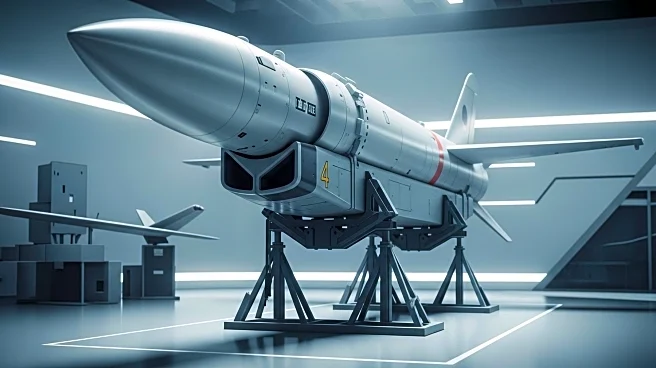What is the story about?
What's Happening?
The US government has approved the sale of the latest variant of the AIM-120D-3 Advanced Medium-Range Air-to-Air Missile (AMRAAM) to Germany. The sale, valued at approximately $1.23 billion, includes up to 400 missiles, related equipment, spares, training, and support. The approval aims to enhance Germany's air-to-air capabilities for its F-35 program and support NATO operational requirements. This follows previous approvals for AIM-120C-8 missiles as part of Germany's weapons package for its F-35A Lightning II aircraft.
Why It's Important?
The sale of advanced AMRAAM missiles to Germany underscores the strategic importance of strengthening NATO's defense capabilities amidst evolving security challenges. The acquisition enhances Germany's ability to address current and future threats, contributing to collective security efforts within the alliance. The deal reflects ongoing military collaboration between the US and Germany, reinforcing their commitment to shared defense objectives. The approval also highlights the significance of advanced missile technology in modern warfare and its role in maintaining air superiority.
What's Next?
The sale must be cleared by the US Congress before contracts are issued and deliveries commence. Germany is expected to integrate the missiles into its F-35 program, enhancing its air defense capabilities. The acquisition may lead to further military collaboration and joint training exercises between NATO members. The situation could also influence future defense spending and procurement decisions within the alliance, as countries seek to bolster their military capabilities.
Beyond the Headlines
The sale raises questions about the implications of advanced missile technology on global security dynamics and the potential for an arms race. It highlights the importance of international cooperation in addressing security challenges and maintaining stability. The deal may also impact diplomatic relations and influence policy decisions related to defense and military collaboration.















